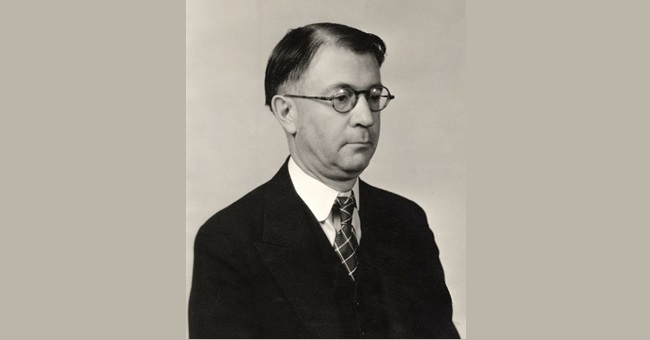by Mike Roberts, Church Historian
Working toward a goal of social justice has been a guiding light throughout the somewhat short history of the Unitarian Universalist Church. Our own social justice committee is quite active in multiple causes that affect the citizens of the Cincinnati area and beyond. What are our roots? Were our Universalist forefathers active in the social justice movements of their day? The Universalist Church in Ohio, written by Rev. Elmo Robinson and published by the Ohio Universalist Convention in 1923, sheds some light on the church’s attitudes toward social justice activities during the 19th century.
The Temperance movement attracted the attention of Ohio Universalists. At the 1834 Ohio State General Convention it was “Resolved, That we deplore the intemperate use of ardent spirits; and recommend to our brethren that temperance in all things, which becometh the professors of the Gospel of peace.”
In 1852, the language grew stronger. “Intemperance is a great evil, bringing poverty, sorrow, and destruction and acts as either a direct or indirect cause of much of the immorality and crime, especially in our large cities. Universalists should give their influence against the traffic and encourage the friends of temperance.”
In 1872, prohibition was endorsed. “Resolved, that we pledge our hearty cooperation in all wise and just measures looking to final prohibition of the manufacture and sale of intoxicating drinks.” Support for abolition and temperance seemed to wane, however, as several measures towards that end were defeated at later state conventions by narrow votes.
It should be noted that there is a bit of irony in one attempt to bar tavern owners from membership in the Universalist Church. One of the founders of our church, Griffin Yeatman and his family, opened the very first tavern in Cincinnati.
Of course, if alcohol is bad then tobacco must also be evil. In four different Ohio General Assemblies in the late 19th century, the church condemned the use of tobacco. “Resolved, That the Universalists of Ohio enter their protest against the use of Tobacco, looking upon its use as an evil second only to the use of intoxicating liquors.”
The attack on tobacco was then aimed toward the church itself. The use of tobacco was prohibited to its ministers, church officers and any persons in a Universalist Church teaching position in the State of Ohio.
Capital punishment also came under attack as early as 1845 when the following resolution was passed: “Whereas the infliction of Capital Punishment is inconsistent with the doctrines of Christ—the requisition of blood for blood, in the first dispensation, having been, in our opinion, abolished by the Gospel Dispensation, which requires us to render good for evil and to overcome evil with good—by this body therefore be it Resolved, That we recommend to our brethren everywhere to sue all lawful means to effect the abolition of Capital Punishment.”
Two years later, ministers were asked to preach on the fourth Sunday of September the commandment that “Thou Shall Not Kill” and demand the abolition of capital punishment. Prison reform was also often attached to this argument. In 1880, the state Universalist Church took up the cause of a 16-year-old condemned to die. The state convention called upon Governor Charles Foster to commute the death sentence of this young man and change it to a sentence of life imprisonment.
Without doubt, the great dividing issue of the first half of the 19th century was slavery. In 1843, the national Universalist Convention was held in Akron. They passed an anti-slavery resolution with but one dissenting vote. However, it must be noted that no southern states sent a delegation to the convention. The resolution attacked slavery as antithetical to the beliefs of Universalism. Four lengthy resolutions opposing slavery were passed.
However, the softened tone of the final resolution is indicative of the difficulty faced by the entire nation in how to deal with enslavement and not break the nation in half. The final resolution stated, “Resolved, That while we regard the holding in bondage of our brethren for whom Christ died, or the treatment of any human being with obloquy, harshness, or any indignity on account of his color or race, as contrary to righteousness, inconsistent with Christianity, and especially with that doctrine of Universal Grace and Love which we cherish as the most important of revealed truth, we are well aware that many worthy and upright Christians have sustained the relation of slaveholder in ignorance of its true character, nor from inability to relieve themselves, therefrom; and while we earnestly entreat all Christian and especially all Universalist slave-holders to consider prayerfully the nature and tendencies of the relation they sustain, we recommend or countenance no measures of indiscriminate denunciation or proscription, but appealing to the gospel, to humanity and to their own conscience we await in implicit confidence the perfect working of the principles of Divine and Universal Love.”
Other subjects that were ripe for reform are listed in this work but without mention of formal convention resolutions. These included church unity, social purity, (President) Roosevelt’s investigations of industrial conditions, abolition of child labor, equal suffrage and public health.
In 1867 a general statement on reform was issued and its eloquence speaks to where the Universalist of that time period saw the potential solution to social justice. “When Christianity is rightly apprehended and made truly practical, much of the noise and confusion of reform machinery will be done away with. But the spirit of reform that seeks to instruct the ignorant, to help the weak, to give freedom to the enslaved, and to raise them to position to enjoy and profit by that freedom, that seeks to raise all human beings without distinction of color, race or sex, to an equality of privilege, that seeks for the causes of depraved morals and depraved appetites, and strives to so enlighten mankind as to set the streams of life running in better channels, this is the Spirit of Christ, and the Church that ignores it for the sake of any present popularity or gain, will finally go to destruction as it ought.”
Image: Rev. Elmo Robinson, author of The Universalist Church in Ohio, published in 1923.
Image source: Dictionary of Unitarian & Universalist Biography

